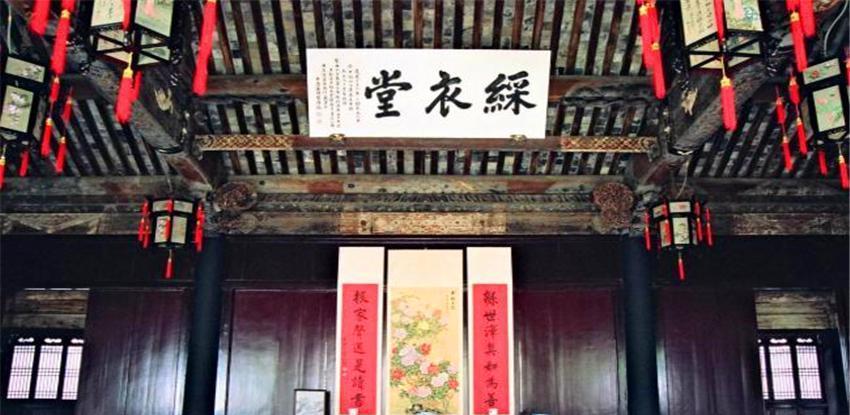In Chinese history, there have been many literati and inkers, and their achievements in literary creation are extraordinary, but there are not many who can make a name for themselves in the official arena. However, in the late Qing Dynasty, there was a very outstanding literati, who not only came from a prominent background, but also became an official to the prime minister, and in his later years he also served as a scholar of the two imperial thrones of Tongzhi and Guangxu, he was Weng Tonggong. What we want to talk about today is not his many achievements in literature and politics, but his great contribution to the collection of traditional Chinese paintings and calligraphy.

Weng Wange completed his university studies in Shanghai before the War of Resistance Against Japanese Aggression, and then went to the United States to escape the war, and after returning to China, the civil war has not been calmed, so before liberation, he made an important decision to transport all the precious cultural relics collected by the family for generations to the United States. This was originally an expedient measure to protect cultural relics during the war, and it was indeed largely preserved at that time, but it was not expected that this batch of cultural relics would never be able to return to the motherland.
After the founding of the People's Republic of China, the country has paid more and more attention to the work related to the protection of cultural relics, and has also paid a lot of manpower and material resources to collect and recover all kinds of precious cultural relics that have been lost, among which a lot of ideological work has been done for the collection in the hands of Weng Wange. After all aspects of the efforts, a domestic museum has bought back dozens of precious classics from Mr. Weng, although it has paid tens of millions of dollars for this. Unfortunately, there are many precious works of calligraphy and painting that have not been successfully recovered, including a painting of the Yangtze River that was completed in the Qing Dynasty.
As a family collector, it is both an honor and a very difficult task to be able to keep the cultural relics handed down by the ancestors, and the relevant departments of the state have fully supported it with the attitude of respecting the collectors, but hope that with the passage of time, these precious cultural relics can be returned to the motherland, rather than staying abroad. For Mr. Weng himself, he has been committed to studying China's traditional history and culture for decades, and has tried his best to promote China's precious and exquisite culture to Western countries, but on his centennial birthday, a shocking news came from the Chinese people.
He donated 183 precious artifacts from his family's collection to a museum in the United States free of charge, including the above-mentioned precious scroll that he did not want to sell to the country. You know, before that, he had donated dozens of national treasures to the other party. In this regard, not only the cultural relics protection department does not understand, but even Chinese citizens who are ordinary people are difficult to accept. The reason why our country has been able to persevere in the world after thousands of years, and even after many tribulations, it has won the final victory through a struggle is because we are a very cohesive nation, and everyone here has a patriotic heart.
China's precious cultural relics are the crystallization of the wisdom of the Chinese ancestors, but also after many generations of efforts to be handed down, they are an important part of Chinese civilization, should be left in our own land, for future generations to see, study, if one day our descendants want to observe the works of the ancestors also need to go abroad, this is a bit ironic.